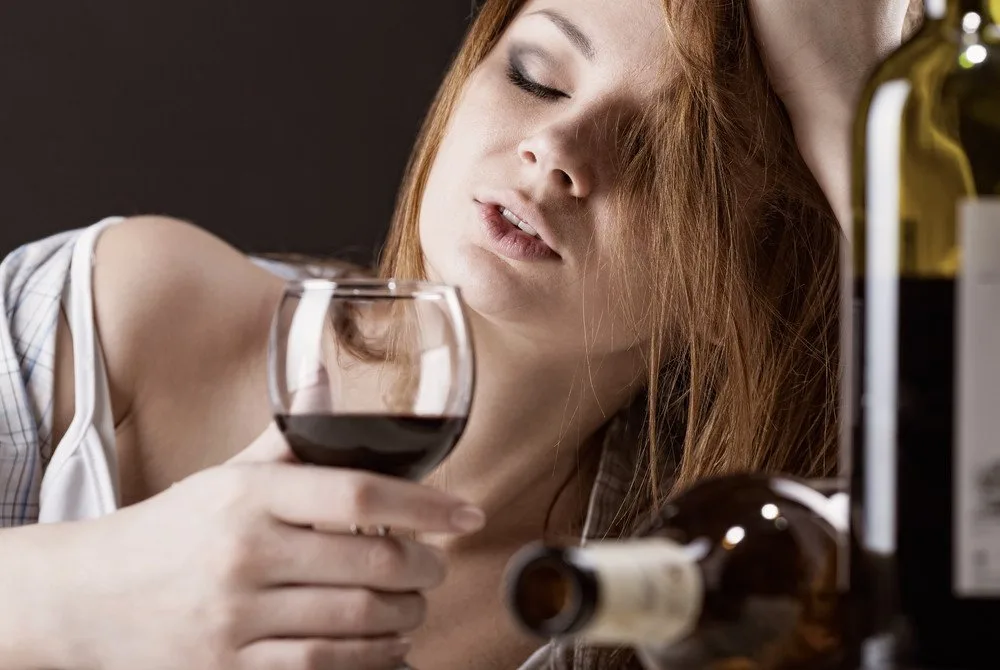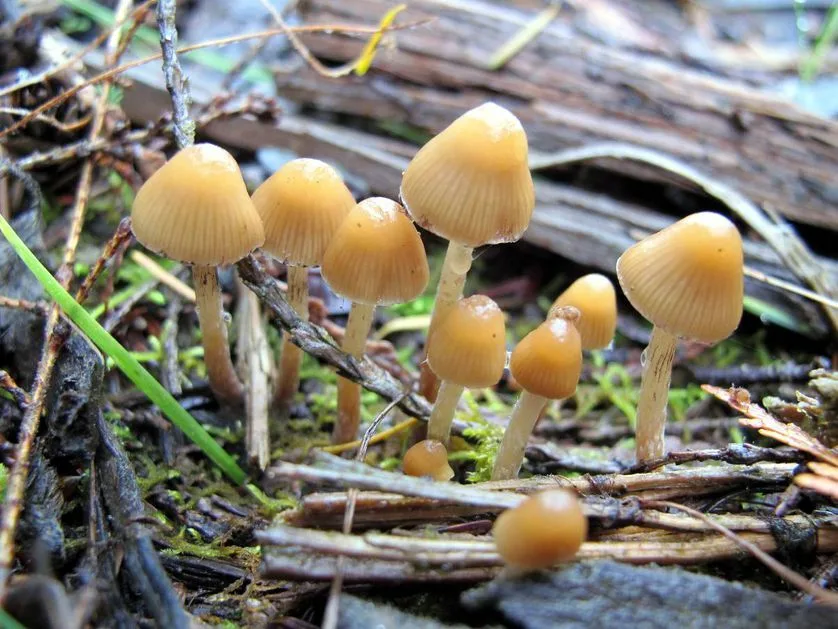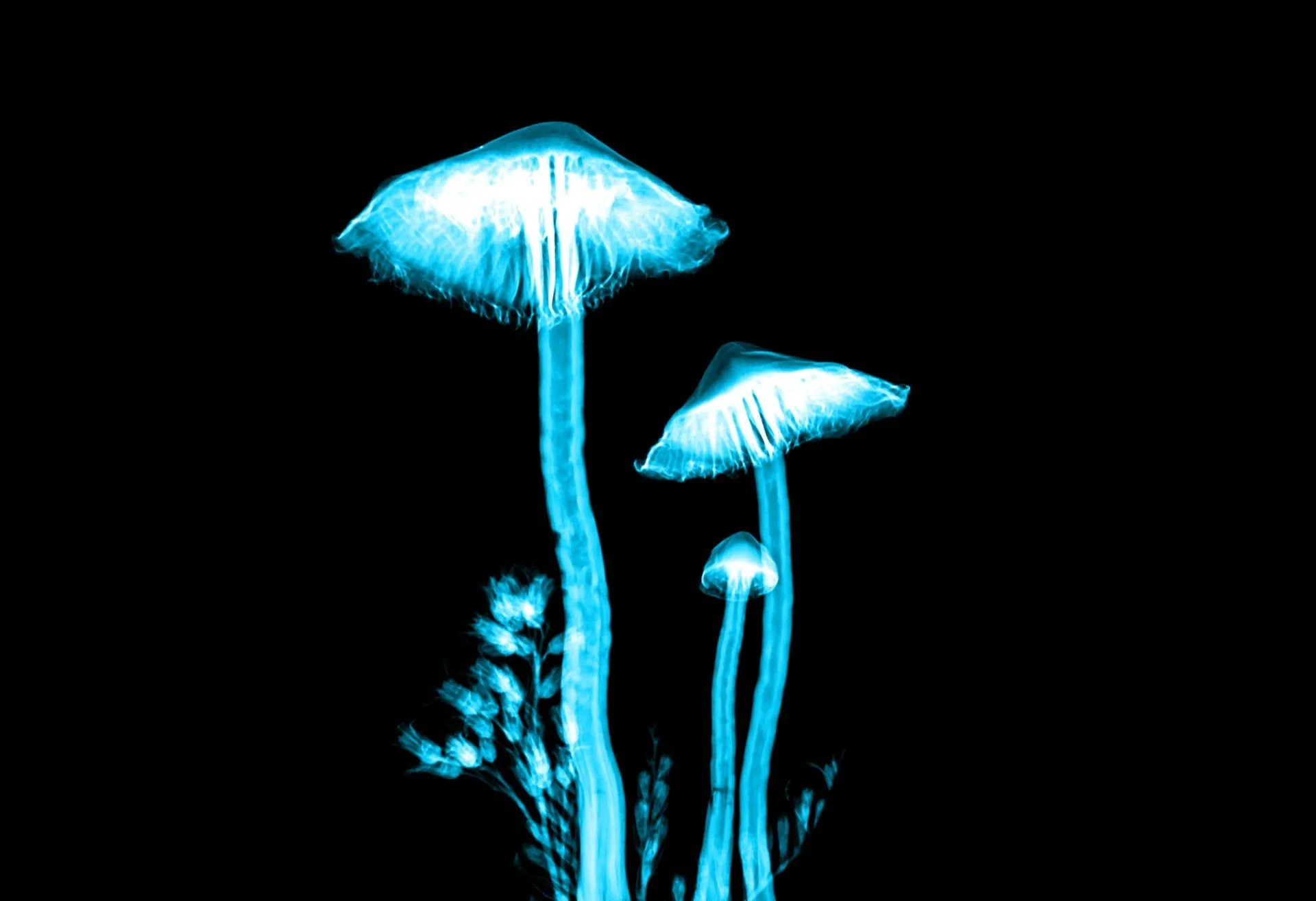According to research published in JAMA Network Open, after the pandemic, alcohol-related deaths among U.S. adults ages 25 and up soared by 25% in 2020, and 22% in 2021, compared to average annual deaths from 2012 to 2019. What’s more, the pandemic caused a 41% increase in heavy drinking days among women
It’s clear that America has a serious problem when it comes to alcohol. Alas, it appears that those struggling with alcohol addiction are not getting the necessary care. A 2019 analysis courtesy of the JAMA Network found that out of the 14.1 million people who had alcohol disorders in 2019, only 7% received any treatment.
Now, with rates of alcohol abuse rising and treatment options seemingly lacking in effectiveness, researchers are looking for new ways in which the issue of alcohol addiction can be addressed. That said, new research has emerged that suggests that the power of psychedelics may be what we need to address alcohol abuse.
Magic Mushrooms Can Curb Alcoholism
Psilocybin is a psychedelic compound found in magic mushrooms and while the idea of tripping for your health may sound ludicrous, research has uncovered the many potential health benefits of psilocybin – none of which involve you getting high.
It should be noted that mixing shrooms and alcohol by consuming them together is not recommended. Quite the opposite, small doses of psilocybin are meant to curb alcoholism.
In a more recent study aimed at addressing alcohol abuse and individuals’ drinking habits, researchers turned to psilocybin.
The study, published in JAMA Psychiatry, recruited 93 individuals with alcohol use disorder who, in the 12 weeks leading up to the study, drank alcohol for an average of around 60 days. Of those 60 drinking days, around half were heavy drinking days. For the study, 48 of the participants took doses of psilocybin and the remaining 45 received a placebo, diphenhydramine. Each group took their respective medications twice over the course of the 36-week-long study.
In addition to the administration of medication, participants also had four sessions with therapists before the first time they took the drug, four sessions between the two drug doses, and four sessions after the second drug dose. These sessions included motivational and cognitive behavioral techniques aimed at reducing drinking,
“Psychotherapy was an integral part of the treatment model, and so we can’t make any statements about what the psilocybin would be doing in terms of therapeutic effects without that psychotherapeutic platform,” said study author Michael Bogenschutz. Bogenschutz is a psychiatrist and director of the NYU Langone Center for Psychedelic Medicine.
Is Psilocybin the New AA?
“I’d say it saved my life. This eliminated all my cravings to the point where it cured my alcoholism. And I don’t categorize myself as an alcoholic anymore…
I went into this clinical trial. I did psilocybin-assisted therapy, and I left. My greatest expectations for this were to be able to manage my cravings, and this surpassed that. This eliminated all my cravings to the point where it cured my alcoholism.” – study participant Jon Kostas, who took psilocybin as part of the study.

Artem Furman/Shutterstock
According to the findings of the study, while each participant did start drinking less after the first four weeks of the study, those who took psilocybin experienced an even greater reduction.
In fact, those who took psilocybin experienced an 83% reduction in heavy drinking compared to the placebo group who reduced their heavy drinking by only 51%.
While the results of the study do show promise for the future of psilocybin and alcohol abuse, the researchers noted that the study was not truly blinded. About 95% of the participants correctly guessed whether they were taking psilocybin or the placebo. Unfortunately, this then makes it harder to prove that psychedelic experience and treatment are the causes of improvement.
In regards to safety, the authors noted that psilocybin was administered in a safe environment, with participants being carefully screened and monitored throughout the time they spent on the drug. Additionally, participants only experienced mild side effects like headaches, nausea, and anxiety. Ironically, the placebo group did experience adverse side effects outside the clinic during the trial, and these included severe vomiting and psychiatric admissions. It appears that these effects were a result of the suicidal ideation that occurred during their binge drinking episodes.
A Rebirth of Psychedelic Research
As innovative as this study may seem, it is not the first to examine how psychedelics may help address alcoholism. In the 1950s, UK psychiatrist Dr. Humphry Osmond administered LSD to alcoholics who had tried other forms of treatment that had failed. According to his findings, 40% to 45% of those who took LSD were still sober after a year.
Around the same time period, there was a boom of interest in the health benefits of psychedelics. Unfortunately, following the War on Drugs, as well as Harvard psychologists being fired once it was revealed that they had been giving LSD to their students, the public perception of psychedelics took a hit. Eventually, psychedelics became Schedule I drugs – substances with “no currently accepted medical use” and a high probability of abuse.
While research into the benefits of psychedelics came to a screeching halt decades earlier, studies in recent years have begun to make up for the lost time. In fact, these studies continue to highlight the benefits that these substances can have for our longevity.
Magic Mushrooms For Longevity
According to Bogenschutz, psilocybin’s benefits may be linked to how it affects the brain, and it can enhance the ability of people to make the necessary changes for their health.

Bogenschutz also points out that psilocybin is a promising treatment because it has a long-lasting, powerful effect after just a few doses, which suggests that the underlying disorder is being treated, rather than just managing the symptoms.
At this time, psilocybin is still illegal in the US, but Oregon and several cities have decriminalized it and Oregon will soon allow its supervised use by licensed facilitators. Additionally, Bogenschutz and his colleagues have plans to launch a larger trial next year. It will take place at 15 sites and likely take two to three years to complete.
While we may not know what the future brings for magic mushrooms and other psychedelics, their effectiveness on our health cannot be understated.
Want to know more?
Similar to cannabis, the change in attitude towards psychedelics has opened the floodgates when it comes to research. In fact, many studies have found that psychedelics can boost your longevity in many ways.
References
Bogenschutz, M. P., Ross, S., Bhatt, S., Baron, T., et al. (2022). Percentage of Heavy Drinking Days Following Psilocybin-Assisted Psychotherapy vs Placebo in the Treatment of Adult Patients With Alcohol Use Disorder: A Randomized Clinical Trial. JAMA psychiatry, 10.1001/jamapsychiatry.2022.2096. Advance online publication. https://doi.org/10.1001/jamapsychiatry.2022.2096
Han, B., Jones, C. M., Einstein, E. B., Powell, P. A., & Compton, W. M. (2021). Use of Medications for Alcohol Use Disorder in the US: Results From the 2019 National Survey on Drug Use and Health. JAMA psychiatry, 78(8), 922–924. Advance online publication. https://doi.org/10.1001/jamapsychiatry.2021.1271
Pollard, M. S., Tucker, J. S., & Green, H. D., Jr (2020). Changes in Adult Alcohol Use and Consequences During the COVID-19 Pandemic in the US. JAMA network open, 3(9), e2022942. https://doi.org/10.1001/jamanetworkopen.2020.22942
Yeo, Y. H., He, X., Ting, P. S., Zu, J., Almario, C. V., Spiegel, B., & Ji, F. (2022). Evaluation of Trends in Alcohol Use Disorder-Related Mortality in the US Before and During the COVID-19 Pandemic. JAMA network open, 5(5), e2210259. https://doi.org/10.1001/jamanetworkopen.2022.10259



![women [longevity live]](https://longevitylive.com/wp-content/uploads/2020/01/photo-of-women-walking-down-the-street-1116984-100x100.jpg)










